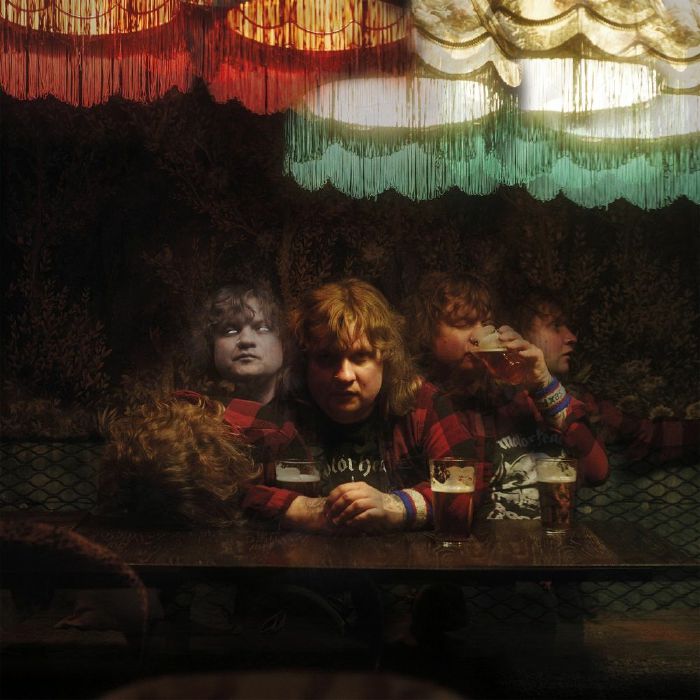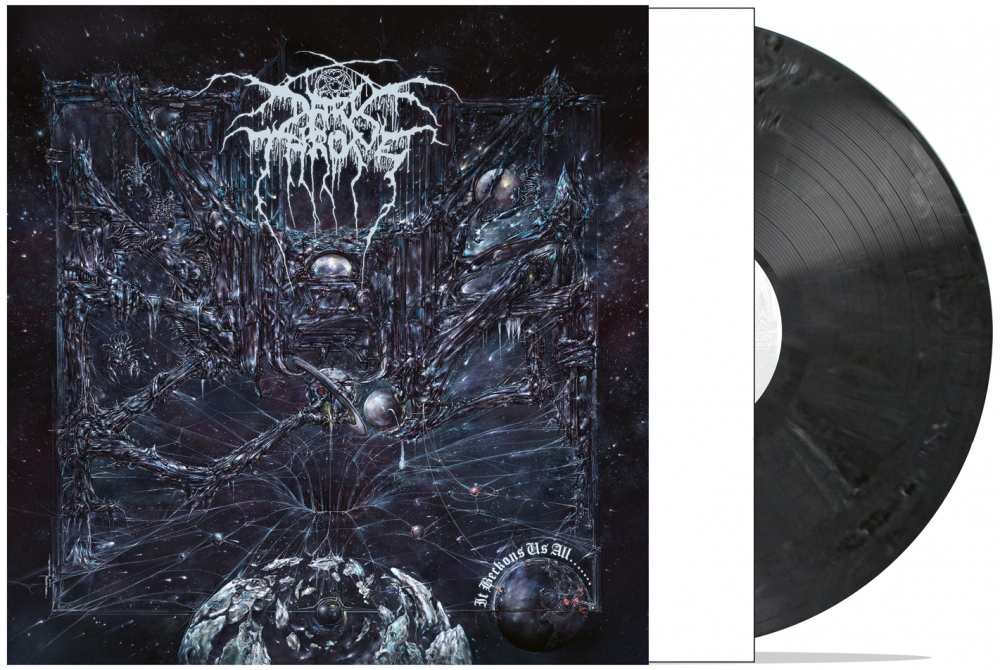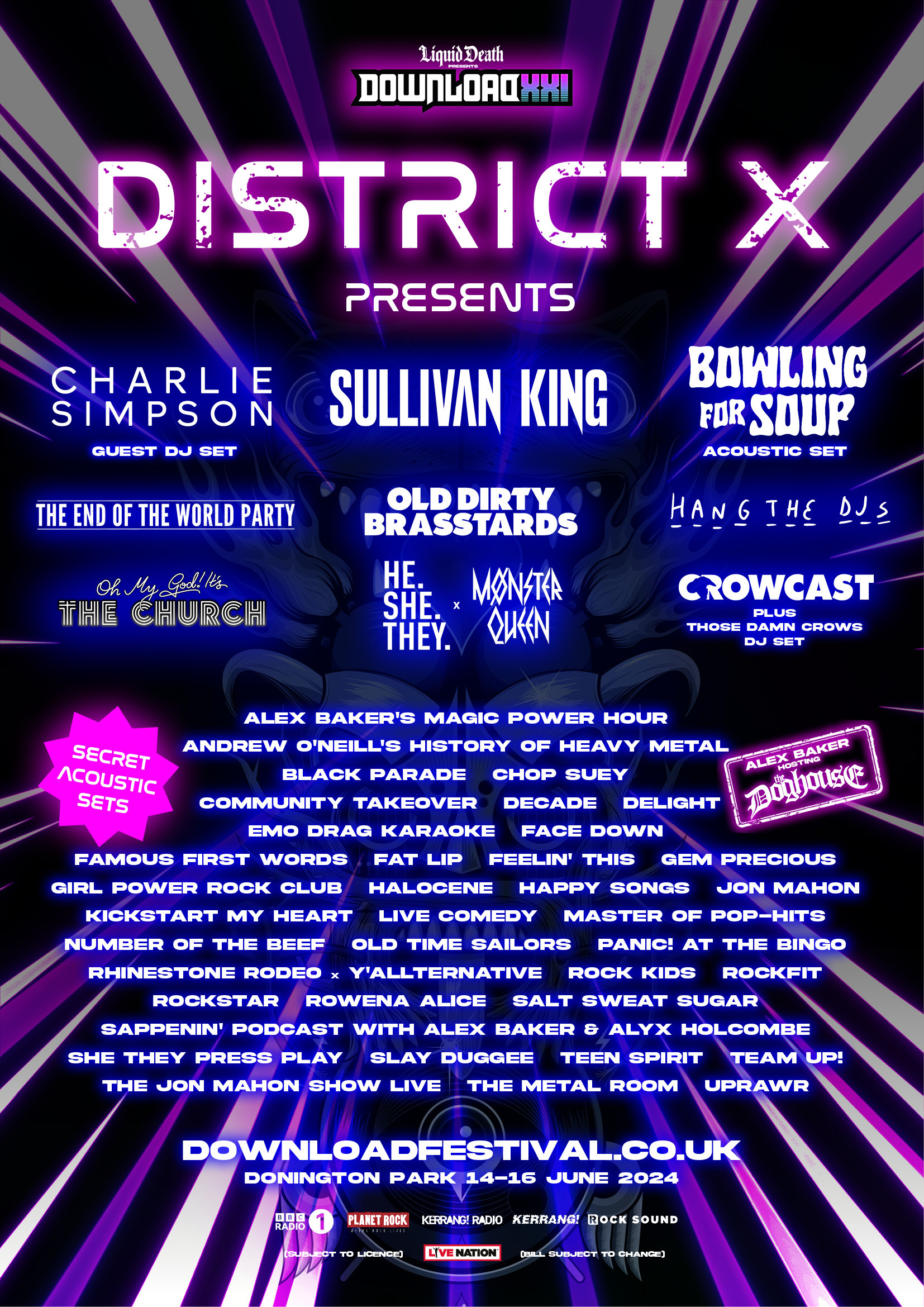It’s been three years since Maschine, the Brighton-based progressive band released the acclaimed ‘Rubidum’, nearly a life-time in today’s media-obsessed world. Behind the scenes, health issues and line-up changes led to the hotly anticipated follow-up, the stunning ‘Naturalis’ (reviewed here), taking far longer than planned but, as you shall see on Friday 18th November, the wait has been worth it. With a far more focused sound than its somewhat scattershot predecessor, ‘Naturalis’ remains the work of a confident and technically-gifted band, but here, song-writing is to the fore and with a cohesive theme to build around, the result is a record that feels far more memorable and detailed. With the release of the album fast approaching, we were lucky enough to speak to Luke Machin, the band’s distressingly talented frontman (and producer) about the development of a record that looks set to secure Maschine’s place at the forefront of contemporary progressive music.
The first question is based around the creation of the new album. There’s an oft-repeated, and I think erroneous, idea that the second album is much more difficult than the first because you’ve got much more time to create the first record. But in the case of Maschine, it seems to have worked the opposite way because, in having less time, it seems to have led to a much more concise set of songs. How do you feel the process of developing within the time constraints went this time round?
Yeah, totally. As you say, it’s a totally different process. Our debut, which was like three years ago, even at that point the tracks were already four or five years old, some of them. So yeah, we had all the time in the world to bring out that first record. So, obviously, when the album came out and we promoted it and stuff, it wasn’t so fresh, whereas a couple of years ago, when we started writing the music for this album, it was all still really fresh and we could really get into it. It’s a nice thing to be able to do rather than the tracks being so old that they’ve had the life taken out of them from our standpoint.
So, yeah, it’s a totally different exercise, writing the tracks in such a short space of time. That urgency always niggling away at you and stuff definitely helps. I think that the first album, we didn’t really know stylistically… we just threw a lot of ideas into the melting pot and that was obviously the basis of the album, whereas this album is a lot more cohesive with technical ability injected in there as opposed to the first album which is kinda full-on technically and there are some songs in there somewhere.
One of the elements of creation that is less talked about is that there is often an A&R process where the band produces a number of demos which get discussed and filtered through a number of people, whether that be other band members, a manager or the label or whatever. Did you go through such a process for this album?
Well, I wouldn’t say that there are boundaries or anything. Within progressive music anyway, the boundaries are so vast that nothing’s set in place. With progressive rock, there are so many sub-genres that have evolved within the genre itself that it’s kind of like… I like all different styles of music, so when I’m writing I don’t necessarily think that a song has to fit in with a certain template or whatever. If it’s good music, it’s good music and I try to get that feeling from whatever music I’m listening to, have an idea and kind of inject that into our songs. But what holds it all together are the musicians and the production as well, because you’ve recorded in the same place and all the songs sound like they’ve been recorded together, you’ve got that cohesion – cohesion within the sound of the album really. I think that, with it being lots of different styles or whatever, it still feels like the same band playing the same set of songs within the album. So that’s our approach to it really.
One of the advantages is that you recorded this album yourself in your own studio…
Yeah…
…How did you approach the process of actually producing the record, because that adds another layer of challenge for you as the songwriter, to then be responsible for the sound as well the creation of the music.
Yeah, I mean, it’s definitely been a learning experience for me. I produced the first one as well, but from then until now I’ve learned so much in terms of production and it’s been great. I’ve really, really enjoyed the process. Obviously it can get really dull if you’re listening to, like, a drum fill over and over again for a week or something. But everything – recording all the parts – you have an initial idea in your head and that can be difficult to pass over to another producer, and it’s better if I can produce my own music really. To keep that initial feeling and keep that magic going throughout, that’s important, so obviously, I had to learn a lot of production to shape the sound and get it to sound the way I wanted to in the end.
It’s clearly very important to you to maintain creative control of the band. Was that something you had to work out carefully with the record label, because it can be quite easy for bands to lose control of their art the second they get signed.
Yeah, sure. I mean, InsideOut kind of let me… they have a lot of trust in me, having listened to the first record and demos of this record, that ‘Naturalis’ was on the right track and was song-based. It wasn’t like I was writing something completely outside of what they had in mind for us, so it was kind of a mutual exercise between both of us and I kind of understood what they wanted in the first place. Even though I was able to do what I wanted to do, we had the same ideas anyway, so it wasn’t the worst thing in the world to get this finished and to get this thing out there. It was definitely something they were interested in from the beginning, from the demos and stuff, so it was easy for me to go along with that and I wasn’t hounded by them at all. It was a nice, easy process from the off, really.
One of the thing that I really enjoyed, listening through to the record, was that there seems to be a strong influence of more jazzy guitar players such as John McLaughlin and Jeff Beck, particularly on songs like ‘a new reality’, and I wondered what influences you took on board as a player on this album?
Yeah, our roots are those guys. I’m heavily into jazz, fusion, progressive music and seventies stuff, but yeah, there are different influences. I’ve been really into this French electronic stuff at the moment that we’ve been listening to and there are different electronic sounds in there for sure and it’s just down to good music, and what we think is good music: just getting that feeling and inspiration from something. Here in Brighton we go out and listen to different bands, even like a three-piece indie band we can get inspiration from, for example that kind of close, tight-knit sound at the end of ‘hidden in plain sight’. There are loads of different styles, but trying to keep it within the Maschine sound is the important thing, I guess. But it’s always good fun bringing different elements in to the writing process.
The other side is the lyrical theme that runs through the album, which I understand is about the power of nature juxtaposed with a hope for survival and continued existence…
The original thing that I heard, that set it all off, was on the last track, ‘Megacyma’, which translates from Latin roughly into big wave, and it’s about the Japanese Tsunami and that story of how nature can affect us all really. Obviously, different stories like that. The second track is about a WWII veteran called Robert Cain who fought on into the night, defending that area and his natural instinct to carry on fighting. All those kind of in-depth stories of man against nature inspired the lyrics. I didn’t want to make it too dark, about natural disasters and all that, I wanted to keep that light at the end of the tunnel, really, so natural events rather than just disasters. It’s a theme that travels through the album and you come to the end with ‘Megacyma’ which closes it. It was something that just… watching numerous documentaries and stuff, it’s fascinating to hear different stories about people who struggled and survived. Those stories just fascinate me really.
Beyond writing the songs themselves, there’s often a challenge in progressive rock in sequencing the album so that it takes you on a journey, was that something that you found to be difficult?
I write all the stuff and all the sounds that you hear are a big part of our musical palette when writing. The theme of the album and all those different sounds within the soundscape have to coexist with the lyrics and the music enforces that. It’s a big part of what we do for sure.
Another aspect that is clearly important is the artwork – how much do you as a band, or you particularly as the songwriter, involve yourselves in the creation of the cover art?
Definitely. Down to the finest detail. It’s a huge process, but I love to be involved in everything because it’s all art at the end of the day, it’s all within the arts, and everything has to be in keeping with everything else, right from choosing the artist to going online and looking at different ideas. I think that ‘Megacyma’ was the first piece of art that I saw online. It was by this guy in Greece, Constantinos, so I got in touch with him, he was up for doing the album and I just sent him an in depth kind of list of ideas and gave him the lyrical content and what the tracks were about, so he had the subject matter already there and we just threw different ideas back and forth and he’d send me some stuff and we’d finally get it down to what’s going to be in the album now. But yeah, definitely everything down to fine detail… it’s all the fun of the fair really.
One of the reasons that the album took a little bit longer is that you had some throat issues, is that right?
Yeah, yeah. Basically I had this pretty rough time with throat and chest kind of stuff, so that really pushed the album. I couldn’t record any of the vocals on time for the album, so it did push it back a bit, but I managed to overcome that and really build my strength up. A complete 180 on eating; not that I was eating anything bad before; but a complete 180 on diet and I really became like a vegan for a couple of months. After that and I was running up and down the seafront, just trying to get in shape and then, it definitely benefitted me health wise and the vocals on the album – holding those long notes and stuff like that and getting it sounding the way that I wanted it to. It’s definitely all for the best really.
It’s particularly daunting, I think, because there’s a lot of pressure on a vocalist and vocal issues can really knock confidence.
Yeah, for sure, it got to a point where I was really trying to sing something. You’ve got the pain and the sound as well. You can’t build up on that. You can’t try and force your way through it and just carry on singing, I had completely take care with it and be cautious and build up in stages really. I t was a bit of a nightmare, but it wasn’t massively disastrous and InsideOut were absolutely fine with it and completely understood and gave me a bit of time and I managed to deal with it and stuff.
It seems that increasingly there’s a need to make physical editions stand out with bonus tracks and special packaging and so on and I noticed that this album’s coming out with two bonus tracks on it and I was wondering what your thoughts are on bonus tracks given that you create a record which has a flow and a sequence and then along comes the special edition and you’ve got more material added to the end?
Yeah for sure. It’s a big space between having ‘Naturalis’ the album and then the bonus tracks at the end. And they are just a bonus, it’s just a thing added to the end that the company ask you for at the end. And you almost forget about it. At the end of writing the album you’ve written like six tracks, been into the studio and done all that stuff and they’re like “Right! Bonus Tracks?” and you’re like “Oh Shit!” So we went into the live department and we had a couple of tracks with the same line up as is on the new album, so it’s got a different feel and it’s cool to hear it live and stuff. Again, they’re just bonus tracks. People don’t have to listen to them, you can stop it after track six if you like [laughs] If it was up to me, I’d prefer not to have them on, but they kind of have to be there because, as you say, it’s all part of the package and stuff like that.
‘Naturalis’ is released via InsideOut Records on Friday November 18th.
You can check out the band’s official Facebook page here.














Leave a Reply